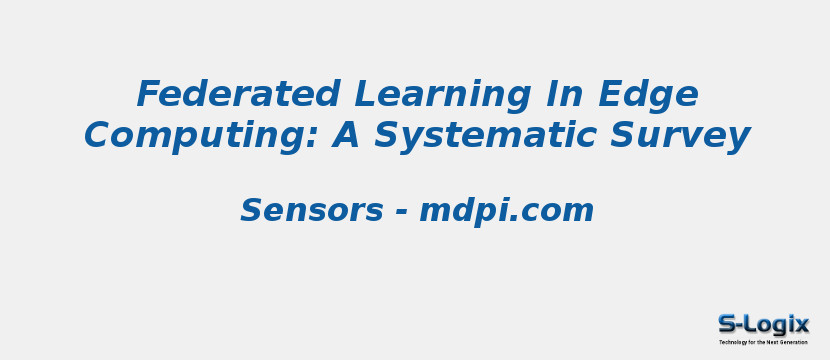Research Area: Machine Learning
Edge Computing (EC) is a new architecture that extends Cloud Computing (CC) services closer to data sources. EC combined with Deep Learning (DL) is a promising technology and is widely used in several applications. However, in conventional DL architectures with EC enabled, data producers must frequently send and share data with third parties, edge or cloud servers, to train their models. This architecture is often impractical due to the high bandwidth requirements, legalization, and privacy vulnerabilities. The Federated Learning (FL) concept has recently emerged as a promising solution for mitigating the problems of unwanted bandwidth loss, data privacy, and legalization. FL can co-train models across distributed clients, such as mobile phones, automobiles, hospitals, and more, through a centralized server, while maintaining data localization. FL can therefore be viewed as a stimulating factor in the EC paradigm as it enables collaborative learning and model optimization. Although the existing surveys have taken into account applications of FL in EC environments, there has not been any systematic survey discussing FL implementation and challenges in the EC paradigm. This paper aims to provide a systematic survey of the literature on the implementation of FL in EC environments with a taxonomy to identify advanced solutions and other open problems. In this survey, we review the fundamentals of EC and FL, then we review the existing related works in FL in EC. Furthermore, we describe the protocols, architecture, framework, and hardware requirements for FL implementation in the EC environment. Moreover, we discuss the applications, challenges, and related existing solutions in the edge FL. Finally, we detail two relevant case studies of applying FL in EC, and we identify open issues and potential directions for future research. We believe this survey will help researchers better understand the connection between FL and EC enabling technologies and concepts.
Keywords:
Federated Learning
Edge Computing
Cloud Computing
Deep Learning
Author(s) Name: Haftay Gebreslasie Abreha, Mohammad Hayajneh and Mohamed Adel Serhani
Journal name: Sensors
Conferrence name:
Publisher name: MDPI
DOI: https://doi.org/10.3390/s22020450
Volume Information: Volume 22 Issue 2
Paper Link: https://www.mdpi.com/1424-8220/22/2/450/htm
